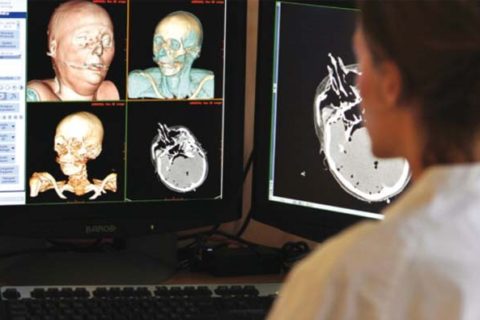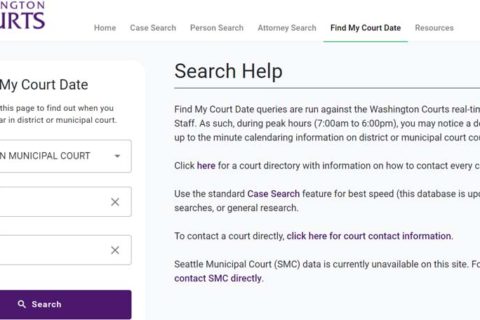Forensic psychologist is a professional who uses his/her psychology knowledge to influence things related to law and criminal justice. As a forensic psychologist, you will be able to play a role in civil or criminal court cases, the improvement of the community, or the corrections system. If you choose this profession, then you can become a champion for justice who makes a difference for individuals and communities.
To obtain a psychologist license, you must meet educational requirements. Surely, the new psychologists need to perform hundreds of hours of training under the supervision of an experienced psychologist. Keep reading to learn the details of education required for forensic psychologists.

Education for Forensic Psychologist
Apparently, there are several careers related to forensic psychology for every level of college education, from a bachelor’s degree through a doctorate degree. To become an official forensic psychologist, a doctoral degree is required. A doctorate degree can be either a Ph.D. or a Psy.D. program, both of which usually take between five to seven years to complete. You can obtain a license with either degree. There are only a few degree programs for forensic psychology. Thus, doctoral programs admit all students with any psychology master’s degree, with either an on-campus, an online program, or a hybrid.
The first step is to obtain a bachelor’s degree. Psychology can be a great field to study. Counseling, social work, and criminal justice are other majors to consider. Next, you may select to obtain a master’s degree. In Forensic Psychology, an MS will likely include many classes on psychology statistics and research. During your doctoral program, those acquired skills can be helpful.
After earning your doctorate, then you will work to obtain supervised work experience. Once meeting your state’s fieldwork requirements, you will be able to apply to your state board for licensure and pass the Examination for Professional Practice in Psychology (EPPP). Next, you can be a licensed forensic psychologist.
Undergraduate Education Requirements for Forensic Psychologist
When you prepare a career in forensic psychology, the APA (American Psychological Association) recommends an educational path focused on psychology, criminology, and forensics. Apparently, many institutions offer undergraduate degrees with a major in forensic psychology.
Here are some of your options for undergraduate degrees:
- Bachelor of Science in Forensic Psychology
- Bachelor of Arts in Psychology, Forensics concentration
- Bachelor of Arts in Criminal Justice, Forensic Psychology specialization
- Bachelor of Science in Psychology, Criminal Justice concentration
Usually, a bachelor’s degree in a program related to forensic psychology will provide you with a comprehensive plan of study that will prepare you for graduate and professional programs in forensic psychology.
Here are major requirements in a forensic psychology bachelor’s degree:
- Cognitive psychology
- Social psychology
- Developmental psychology
- Abnormal psychology
- Research methods in psychology
- Psychology and the law
- Principles and methods of statistics
For those of you who want to choose for completing a bachelor’s degree in criminal justice with a forensic psychology specialization, then you will be able to expect your major coursework requirements to include courses such as:
- Criminology
- Criminal justice statistics
- Criminal justice research methods
- Criminal law
- Forensic psychology
- Criminal profiling
- Criminal justice organizations
- Abnormal psychology
In forensic psychology, most bachelor degree programs are four-year programs that culminate in an internship experience specially designed to immerse you in the field and allow you to get practical experience.
Here are a few of the settings where you can seek an internship experience to complete your forensic psychology bachelor degree:
- Mental hospitals
- Prisons/jails
- Courts
- Private practice
- Police departments
Graduate Education Requirements for Forensic Psychologist
There are many graduate schools that develop psychology degree programs with forensic tracks. This is because the field of forensic psychology continues to increase in popularity. You must complete a master’s degree before you can begin your doctoral program, usually in clinical psychology or forensic psychology.
Your graduate educational path includes the completion of one of the choices below:
- A master’s degree, followed by a doctoral degree.
- A dual master’s/doctoral degree.
A. Master’s Degree in Forensic Psychology
A master’s degree in forensic psychology provides the best preparation for doctoral studies in forensic psychology. A master’s degree gives you a chance to pursue a more narrowed area of study in forensic psychology. You will make efforts to reach one of two goals through the completion of your master’s degree; to prepare for entry into a doctoral program, or to obtain the skills and knowledge required to enter the field.
These programs can be structured a few ways, such as:
- Master of Arts/Science in Forensic Psychology
- Master of Arts/Science in Clinical Psychology, with a focus in Forensic Psychology
Your master’s degree in forensic psychology will complete your fundamental master’s level education in clinical psychology with coursework and practicum experiences in forensic psychology.
You can expect admission requirements to include the below:
- Minimum undergraduate GPA
- Minimum GRE scores
- A statement of purpose
- Admission essay
Here is core coursework in a master’s degree program:
- Psychology and the legal system
- Theories of criminal behavior
- Psychopathology
- Basics of psychology assessment
- Ethics in forensic psychology
- Research and statistics
Also, you can have a chance to focus your forensic psychology master’s degree by taking electives in your area of interest, such as:
- Children and adolescents in the legal system
- Correctional psychology
- Evaluation and treatment of offenders
- Police psychology
B. Doctoral Degree in Forensic Psychology
Not only allows you to obtain a greater depth of knowledge and skills in forensic psychology, the completion of a doctoral degree in forensic psychology is also required for state licensure as a clinical psychologist.
Doctoral programs can be either PhD or PsyD programs. Surely, both programs prepare you for a clinical psychologist license. The APA (American Psychological Association) notes that students interested in careers in forensic psychology research typically pursue PhD programs, while students interested in careers focused on the application of psychological science to service delivery, such as clinical practice typically pursue PsyD programs.
Here are a few of doctoral degree program options:
- PhD/PsyD in Forensic Psychology
- Clinical PsyD with a focus in Forensic Psychology
- PhD in Clinical Psychology with a Forensic Specialization
Also, several institutions offer a JD/PhD. After completion of this doctoral program, then you will be qualified to sit for the bar.
The APA (American Psychological Association) accredits doctoral-level programs in counseling, clinical, and school psychology. Most states defer to the APA’s Commission on Accreditation for approval of doctoral programs.
For doctoral programs, admission requirements are frequently competitive, with only a fraction of applicants gaining entry. Here are a few of the requirements for admission:
- Exemplary undergraduate/graduate GPA
- Well-rounded resume
- Exemplary GRE scores
- Professional references
- Admission essay
Your dissertation is a crucial component of your doctoral degree in forensic psychology. Also, many institutions offer a wide range of real-world learning experiences in a wide range of settings to complete classroom study. These learning experiences will prepare you for the internship and postdoctoral experience requirements necessary for licensure.
Doctoral programs will give you a chance to focus your doctoral study on specific populations/settings in forensic psychology, such as:
- Adult
- Child/family
- Corrections
- Law enforcement

A bookworm and researcher especially related to law and citizenship education. I spend time every day in front of the internet and the campus library.





